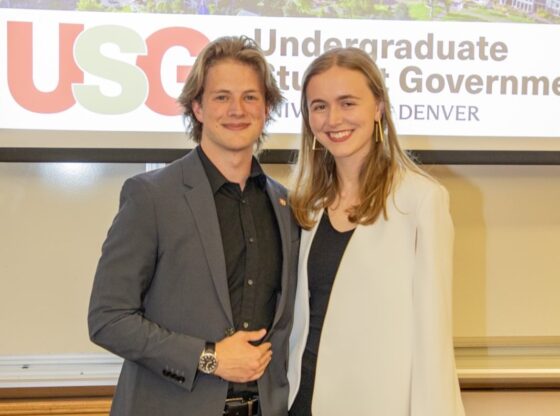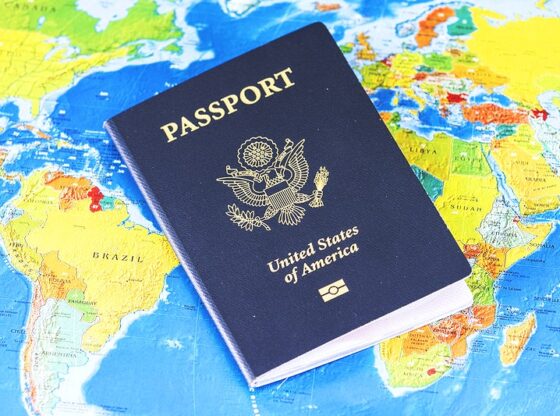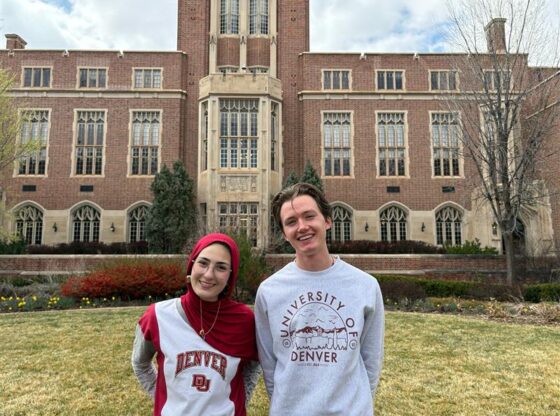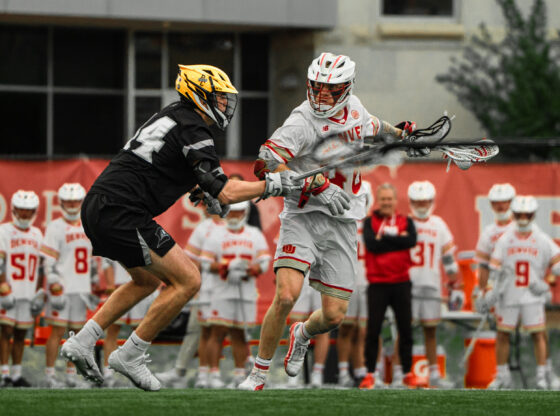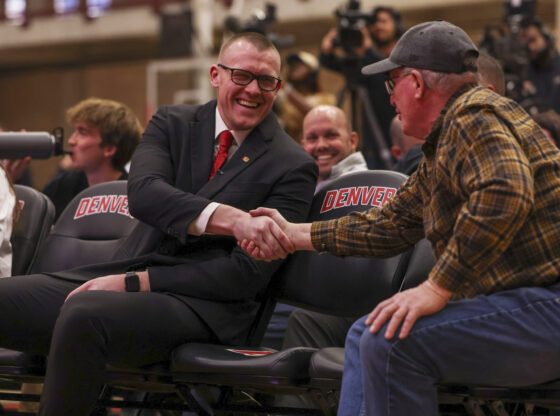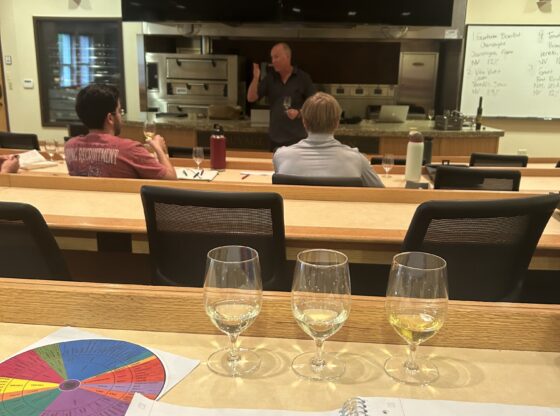 Photo by: Scott Casey
Photo by: Scott Casey
Specialist Ryan Jobes, who returned from Iraq earlier this month, described his experiences to two classes of journalism and communication major Wednesday.
Despite complaints about the massive coverage of Iraq, Jobes entered Iraq after combat had ceased and “never even saw a reporter.” He said many reporters stay in Baghdad, and little of what they report is from an eyewitness account.
“The media does not reflect what we do very well,” said Jobes. “They focus too much on who is dying or how many people the United States has lost, or the effects on Bush’s campaign. The bottom line is life is better there now.”
“The United States does need forces in Iraq not only to keep us safe, but also to keep them safe. I don’t know if we need so many though,” said Jobes. Out of the deck of “The 50 Most Wanted Terrorists” that Jobes bought while in Iraq, only 10 remained when he left.
Amidst questions of a draft for the war last week, a move supported by Sen. Chuck Hagel, Jobes said, “I sure hope that doesn’t happen. Anybody I’m fighting with better be damned sure they want to be there. I think it would hurt the military.”
As for the potential June 30 sovereignty handover set by President Bush, Jobes said, “I think it’s good that they get started at that point. We aren’t just going to keep running the government. I don’t think it will have too much effect on operations with the exception of a few. We will still be geared toward rebuilding the structures and lives of the Iraqi people.”
Jobes said explosives that were fired at his convoy, closely resembled the mortar attacks last Tuesday that killed 22 security detainees in a United States-run prison.
The 21-year-old U.S.Army reservist was based out of Tikrit, Iraq, and was attached to the 555th Engineering Group.
Jobes said, “We helped build bases for our troops and we also built schools and other community centers for the Iraqi people.”
He said his most rewarding experience occurred on one of these convoys. “We did an operation in northern Iraq. We rebuilt schools and got a chance to play around with the children and talk to their parents,” Jobes said.
Although U.S. Customs is strict with what soldiers can bring home, Jobes brought home marbles that children in Samara gave him.
Jobes also remembered an encounter with a Kurd who fought for Iraq in its two wars with Iran. Jobes said, “We both want the same thing and that is peace.”
The nationalistic culture of Iraq impressed Jobes. He said, “They are proud of who they are. If we were like that we would be a lot better off.”
Jobes had never been overseas and was shocked by the “dirty, nasty country.” He said, “Take every basic amenity you use everyday and forget about it. There was no running water or electricity. The streets were covered with trash and everything smelled. Building there would have been condemned in the United States years ago.”
He was stunned by “the way they treat women. It’s getting better with local law enforcement. It was legal for husbands to kill wives for looking at another man, and it was common for it to happen.”
Jobes enlisted on Feb. 25, 2002, following a boyhood dream. He attended the University of New Mexico for a year and was involved in ROTC. He said that September 11 “played a part” in his decision to join the Army.
“It was the piece that helped push me over the edge. I felt as if there was no better time,” he said.
For now Jobes intends to “take a break.” Jobes said, “It is a lot faster pace here. You can pick something new to do everyday.”





